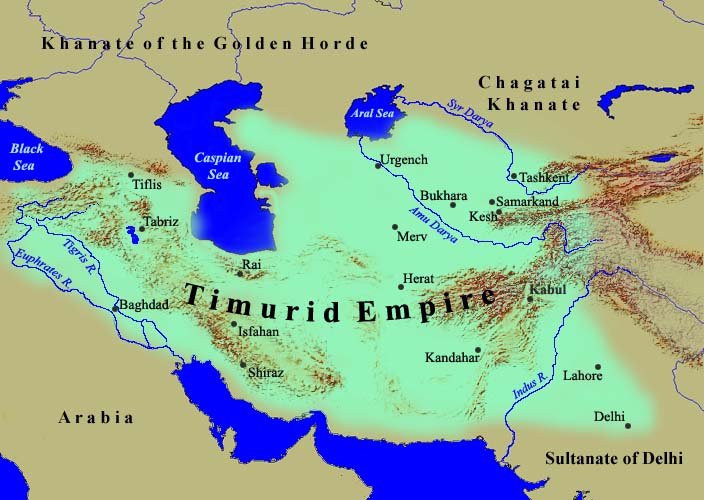
Henry V of England, born 16 Sept. 1366, was not, at the time of his birth, directly in line to become king. His father, Henry IV (formerly Henry Bolingbroke, just one of Edward III’s numerous grandsons), led the Lancastrian usurpation against Richard II, making himself king. Luckily for England, Henry V proved to be a remarkably gifted military commander and a domestic favorite, cementing his position as the country’s leader.
During the period of the 100 Years War with France, England needed a strong and able leader. However, not everyone was on board with Henry’s battle plans. Indeed, as depicted in the play, the government convicted and executed three traitors just six days before Henry’s army set sail for France. The Earl of Cambridge, Henry Scrope of Mashom, and Sir Thomas Grey, were convicted in the so-called “Southhampton plot,” an attempted assassination of the king.
Henry’s famous campaign proved favourable to the English with victories at Harfleur and Agincourt. Shakespeare’s play stages these campaigns, from the lofty promises of victory to his troops to the less-noble decisions to threaten Harfleur’s citizens and to execute French prisoners. After his victory, he made his way into the heart of France to
 negotiate with the French King Charles IV, who agreed to name Henry his successor and seal the deal with a marriage to the French princess Catharine. Charles was in poor health and had suffered some time from mental illness, so it seemed that Henry would outlive him and soon seize the crown with his French queen at his side. Unfortunately, a bout of dysentery killed Henry two months prior to the death of the French King. Henry never wore the crown of France, and he left an infant behind as King of England. England’s dominance of the French was short-lived, and Shakespeare chronicles the loss of Henry’s gains in the Henry VI trilogy.
negotiate with the French King Charles IV, who agreed to name Henry his successor and seal the deal with a marriage to the French princess Catharine. Charles was in poor health and had suffered some time from mental illness, so it seemed that Henry would outlive him and soon seize the crown with his French queen at his side. Unfortunately, a bout of dysentery killed Henry two months prior to the death of the French King. Henry never wore the crown of France, and he left an infant behind as King of England. England’s dominance of the French was short-lived, and Shakespeare chronicles the loss of Henry’s gains in the Henry VI trilogy.
So what of Marlowe’s Tamburlaine? Surel
 y this character’s history couldn’t be as extraordinary as that of the great English king. Well, that’s true; it’s actually much more extraordinary. Marlowe’s play is loosely based on the life of Timur, a one-of-a-kind, hardcore Mongolian warrior. His name “Timur” comes from a word meaning “iron”. If that conjures up images from Rocky IV, then you’re getting the right picture. An exhumation of his remains confirms that he was broad-chested and tall with strong cheek bones. The Persians dubbed him Tamburlaine, which essentially translates as “Timur the lame” (he reportedly limped from a battle injury. The injury, however, doesn’t seem to have deterred his fierceness).
y this character’s history couldn’t be as extraordinary as that of the great English king. Well, that’s true; it’s actually much more extraordinary. Marlowe’s play is loosely based on the life of Timur, a one-of-a-kind, hardcore Mongolian warrior. His name “Timur” comes from a word meaning “iron”. If that conjures up images from Rocky IV, then you’re getting the right picture. An exhumation of his remains confirms that he was broad-chested and tall with strong cheek bones. The Persians dubbed him Tamburlaine, which essentially translates as “Timur the lame” (he reportedly limped from a battle injury. The injury, however, doesn’t seem to have deterred his fierceness).
From 1383-1387, Timur stayed busy conquering Persia, while his sometimes-rival/sometimes-ally Tokhtamysh enjoyed a takeover of Moscow. Then, Tokhtamysh decided to get in on the Persian conquest, invading Timur’s Azerbaijan, a move which kicked off a decade-long war between the two ending in Tokhtamysh’s defeat at the Battle of Terek River in 1395. For some conquerors, this might have seemed like a grand enough accomplishment, but Timur was insatiable. Next, he set his sights on India.
Invading India in 1385, Timur demonstrated his tactical skill and prowess. In one instance, Timur repelled the attack of the Sulton’s 120 fully-armoured war elephants by strapping wood to his camels’ backs, lighting them on fire, and spurring the camels toward the elephants -- causing them to panic and tram
 ple their own army. He, like Henry, ordered the execution of prisoners on several occasions. If prisoners showed the slightest sign of revolt, he wouldn’t hesitate to execute tens of thousands at a time.
ple their own army. He, like Henry, ordered the execution of prisoners on several occasions. If prisoners showed the slightest sign of revolt, he wouldn’t hesitate to execute tens of thousands at a time.
He finally saw defeat as he set out to conquer China, but was beset with fever and plague, succumbing to death Feb 15, 1405. He was survived by his son Shah Rukh and his Harem.
Two legendary warriors, two playwrights and two box offices smashes of the early modern period. Come and claim your seat in the Blackfriars Playhouse to witness Henry’s famous victories and Tamburlaine’s wild conquests.
by ASC Education Intern, Kyle Oram
This comment has been removed by the author.
ReplyDelete